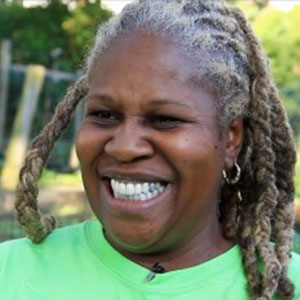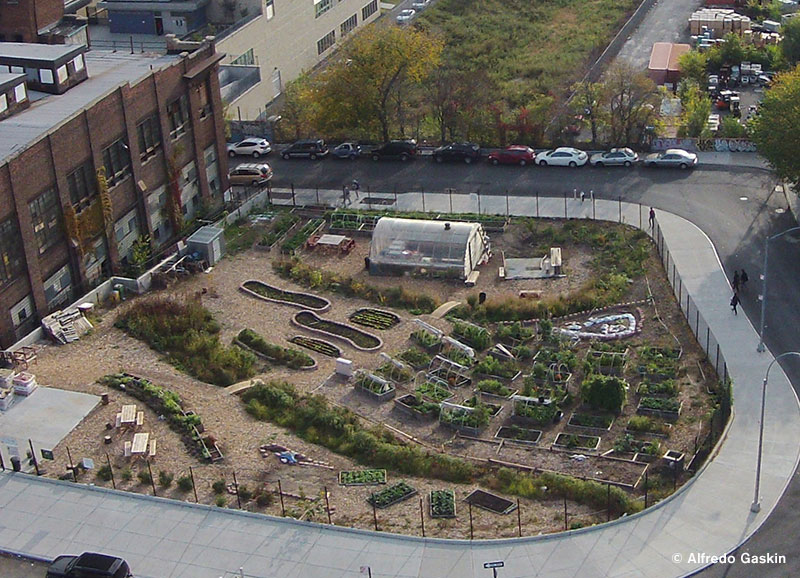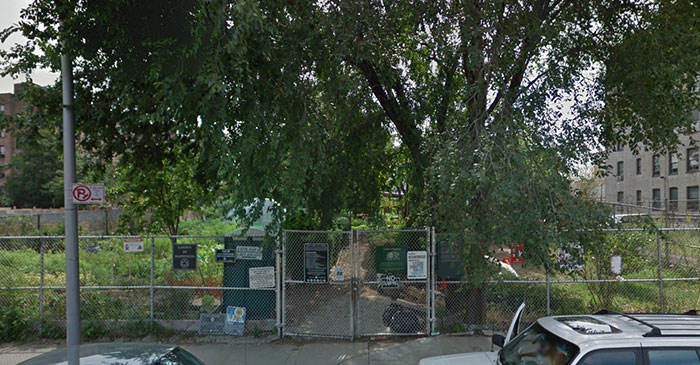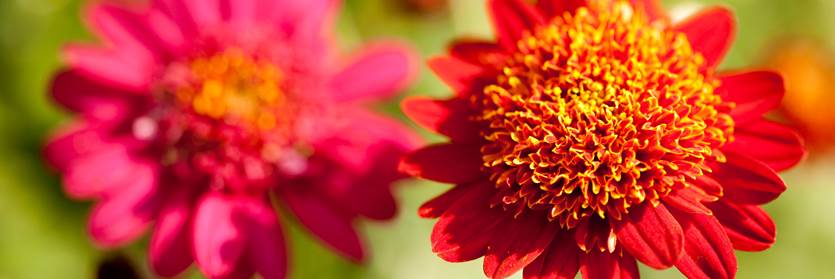Karen Washington: A Champion of Urban Agriculture
Posted in Adult Education on October 29 2015, by Jenifer Willis
Bronx community activist Karen Washington remembers when there were so many vacant lots in the Bronx that the borough looked like “a war zone.”

Over the years, some were turned into community gardens, primarily in an effort to beautify and reclaim neighborhoods devastated by New York’s fiscal crisis of the 1970s. Over time, the dedicated volunteers who created these urban oases realized they could provide so much more than simple beauty. Community gardens became centers for community organization, expressions of cultural identity, and sources of fresh fruit and vegetables for a population in dire need of healthy food.
Washington recently sat down with us to tell us about her experiences working to keep urban gardening alive and well in the Bronx, a mission she’s been on since 1985.
A NYBG Board member and founding member of NYBG’s Bronx Green-Up program, Washington has helped dozens of neighborhoods build their own community gardens. She joins a panel of other urban agriculture experts in our Growing the Urban Farm Symposium on November 18.
“What I like about this particular symposium is that it’s a mix of culturally diverse men and women,” she says. “This means a lot in our community.”
She hopes that the symposium will foster interaction among key players of the urban agriculture movement and help discover how to get people, including government agencies like the Department of Agriculture, to take urban farmers more seriously.
“Urban agriculture is not going away,” Washington insists. “It’s only going to grow and expand.”
The reason for that, she says, is the key roles she’s seen urban gardens play in the community for the past 30 years.

“Community gardens are the lungs of the city,” Washington said. “They provide a place for people to congregate and relieve their stress. It’s a place to celebrate culture and to grow food that’s culturally appropriate.”
Her own Bronx community garden, The Garden of Happiness, plays host to a farmers’ market, where five rural farmers and four community gardens sell fresh produce to local families, never turning away anyone in need.
“Nobody walks away from our market hungry,” she says. “If someone comes to our market and says, ‘Miss, I need to feed my family,’ we give them a bag of produce. That’s what community is about—taking care of one another.”
Community gardens are safe havens for children and seniors, Washington says. It’s also a way for seniors to pass down their wisdom to new generations of gardeners. These are the same young gardeners who, over the past decade, have learned that food doesn’t come from a grocery store; it comes from the earth.
And then there’s the alarming disparity between the food poverty in this country and the amount of food Americans throw away every year.
“Americans waste so much food,” she says. “It’s inexcusable the fact that we have hunger and poverty.”
It’s a rightfully sensitive subject. Washington has watched the Bronx grow and change over the decades, and has seen the right to maintain community gardens become a hotly contested political issue. Much work must be done to preserve these community gardens for future generations, and Washington is ready to protect the precious gardens and farms that have become so critical to the daily lives of Bronx residents, but also have piqued the interest of land developers.
After World War II, people began moving out of cities, seeking refuge in the beauty and open spaces of the suburbs. In fact, just 15 years ago, it is estimated that half the population of the United States lived in suburban areas, according to the U.S. Census Bureau. Now, that trend is reversing, and as a result, community gardens are in an even more precarious situation as land in cities becomes more valuable.

Every four years when garden leases are up for renewal, activists like Washington must be vigilant to ensure green spaces remain. Keeping elected officials aware of the value of community gardens and urban farms is of utmost importance, Washington says. She often invites senators, councilpersons, and other policy makers to visit gardens so they can see for themselves how vibrant, beautiful, and essential they are to the lives of New Yorkers.
“Without a doubt, urban agriculture, especially in municipalities, is definitely tied to politics,” she said.
This month, Washington is a candidate for a $10,000 grant to fortify urban agriculture in the Bronx. The NationSwell All-Star Grant is awarded to the applicant who receives the most votes from the public. Ballots are open now through October 31.
“The money is not for me; I don’t want or need it,” she said. “What the money will do is give me the opportunity to help other community gardens who work with food and social justice. Many times, gardeners and urban farmers are doing the work and don’t have time to write grants. I want to make sure those people aren’t left out.”
City residents, Washington insists, need community gardens, not just as places to congregate and talk, but for health and nutrition, too, because food is the common denominator among all people.
“No matter what you say, no matter your ethnicity, your gender, your economic status, how much education you have, at the end of the day, food is an equalizer,” she says. “You sit at the table, you break bread, and you enjoy food. Not once does that food jump up and ask how much money you make or where you live.”
Karen Washington, urban agriculture advocate, is a panelist for the Growing the Urban Farm Symposium at The New York Botanical Garden on Wednesday, November 18. Washington is joined by Mchezaji “Che” Axum, Nevin Cohen, and Annie Novak during the two-hour discussion, starting at 6 p.m. Learn more and register online.

